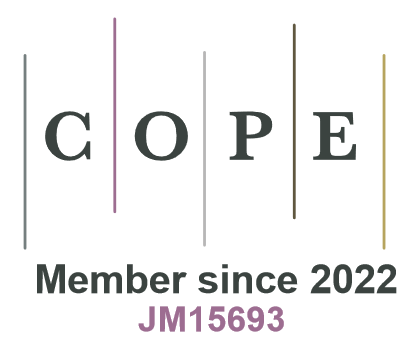Evolution and adaptation of culture in the nowadays American anthropology
DOI:
https://doi.org/10.18778/1898-6773.44.1.14Abstract
The present article characterizes mainstreams of evolutionism in modern American cultural anthropology. Starting with the characteristics of the revival of evolutionist thought during the thirties and forties of the present century, the most important proposals of the first wave of its representatives: L. White, J. H. Steward, and V. G. Childe are described.
Furthermore, crucial theoretical problems of the second neoevolutionary wave are presented. This movement is characterized by the tendency toward solving the contradiction between "general cultural evolution" and "adaptive evolution". When analyzing neoevolutionary theories of cultural ecology widespread during the sixties, the author stresses that they had drawn attention to the importance of biological determinants in the development of culture.
In nowadays neoevolutionism, two orientations may be seen. The first one is called here "genetic evolutionism," while the second one is termed "analytic evolutionism". The most important changes during the development of the neoevolutionary orientation seem to be the following. In the area of considerations pertaining to factors of civilization development, there has occurred a tendency toward abandonment of monocausal interpretation and the adoption of multifactorial analyses. Principles of autonomy of culturological analysis were replaced by an ecological-adaptational approach tying biological and cultural evolution together. A semi-historical and stadial approach was postponed for analyses based on the history of stages of cultural adaptation took its place. Concretization of the subject of studies contributed also to weakening of the generalizing approach. That was the reason for the shift from studying macroevolution toward comparatistic analyses of microevolutionary processes. Finally, all these changes of orientation have caused the transformation of previously formal relations between a number of anthropological disciplines into ties of genuine interdisciplinary collaboration.
Downloads
References
Adams R., 1960, The evolutionary process in early civilizations, [w:] S. Tax (ed.) Evolution after Darwin, vol. 2, Chicago.
View in Google Scholar
Carneiro R., 1974, A theory of the origin of the state, [w:] Y. A. Cohen (ed.), Man in adaptation. The cultural present, Chicago.
View in Google Scholar
Cohen Y. A., 1974, Culture as adaptation, [w:] Y. A. Cohen (ed.) Man in adaptation. The cultural present, Chicago.
View in Google Scholar
Freilich M., 1967, Ecology and culture. Environmental determinism and the ecological approach in anthropology, Anthropological Quarterly, 40.
View in Google Scholar
DOI: https://doi.org/10.2307/3316830
Fried M., 1960, On the evolution of social stratification and state, [w:] S. Diamond (ed.) Essays in honor of Paul Radin, New York.
View in Google Scholar
Goldschmidt W., 1968, Ecology and cultural adaptability. Preliminary report on a field study of microevolution, [w:] Trudy VII Mezdunarodnogo Kongressa Antropologiceskich i Etnołogiceskich Nauk, vol. 4, Moskwa.
View in Google Scholar
Harding T.G., D. Kaplan, M. D. Sahlins, E. R. Service, 1961, Evolution and culture, Ann Arbor.
View in Google Scholar
Harris M. 1968, The rise of anthropological theory, A history of theories of culture, New York.
View in Google Scholar
Leacock E. B., 1958, Social stratification and evolutionary theory, Ethnohistory, 5, no. 3.
View in Google Scholar
DOI: https://doi.org/10.2307/480663
Leacock E. B., 1968, Comments, [w:] Trudy VII Mezdunarodnogo Kongressa Antropologiceskich i Etnograficeskich Nauk, vol. 4, Moskwa.
View in Google Scholar
Łapiński Z., 1962, Technologia, ewolucja, kultura, Znak, 99.
View in Google Scholar
Murdock G. P., 1965, Cultural evolution, [w:] G. P. Murdock, Culture and Society, Pittsburgh.
View in Google Scholar
DOI: https://doi.org/10.2307/jj.5973218
Nowaczyk M., 1964, Leslie A. White — teoretyk amerykańskiego neoewolucjonizmu, Euhemer. Przegląd Religioznawczy 6.
View in Google Scholar
Nowaczyk M, 1970, Ewolucjonizm w religioznawstwie, [w:] Mała Encyklopedia Religioznawstwa Marksistowskiego, Euhemer. Przegląd Religioznawczy 14, nr 3-4.
View in Google Scholar
Opler M., 1961, Cultural evolution, southern Athapaskan and chronology in theory, Southwestern Journal of Anthropology 17, no. 1.
View in Google Scholar
DOI: https://doi.org/10.1086/soutjanth.17.1.3628864
Orenstein H., 1954, The evolutionary theory of V. Gordon Childe, Southwestern Journal of Anthropology, 10, no. 2.
View in Google Scholar
DOI: https://doi.org/10.1086/soutjanth.10.2.3628826
Posern-Zieliński A., 1971, Odrodzenie ewolucjonizmu. Podstawowe problemy i założenia teoretyczne anglosaskiego neoewolucjonizmu, Etnografia Polska 15, z. 2.
View in Google Scholar
Service E. 1968, The prime-mover of cultural evolution, Southwestern Journal of Anthropology, 24, no. 4.
View in Google Scholar
DOI: https://doi.org/10.1086/soutjanth.24.4.3629358
Service E., 1971, Cultural evolutionism. Theory in practice, New York.
View in Google Scholar
Steward J.H., 1958, Theory of cultural change. The methodology of multilinear evolution, Urbana.
View in Google Scholar
Steward J. H., 1960, Evolutionary principles and social types, [w:] S. Tax (ed.) Evolution after Darwin, vol. 2, Chicago.
View in Google Scholar
Szczepański J. 1967, Nawrót teorii ewolucji, Łódzkie Studia Etnograficzne, 9.
View in Google Scholar
Tax Sol, 1960, The celebration: A personal view, [w:] Sol Tax (ed.) Evolution after Darwin, vol. 3, Chicago.
View in Google Scholar
White L. A, 1975, The concept of cultural systems, New York — London.
View in Google Scholar
Willey G. R., 1960, Historical patterns and evolution in native New World cultures, [w:] Sol Tax (ed.) Evolution after Darwin, vol. 2, Chicago.
View in Google Scholar
Downloads
Published
How to Cite
Issue
Section
License

This work is licensed under a Creative Commons Attribution-NonCommercial-NoDerivatives 4.0 International License.








